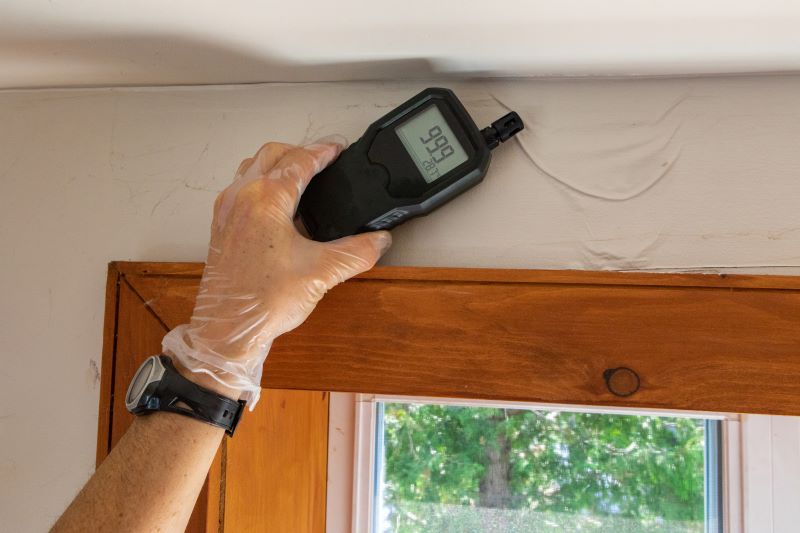
Your first Boston real estate purchase is both exciting and complicated. Many first-time homebuyers get lost in the excitement of touring Boston homes for sale. To avoid making a decision you regret, it’s important to be well-informed. Contingencies are an important component of this process that every potential buyer should be aware of. These conditions must be met for the purchase contract to become binding and for the transaction to proceed. Contingencies provide a safety net for buyers, allowing them to renegotiate or even walk away from a transaction under specific conditions without losing their deposit.
Here are 10 of the most common contingencies you should know about in order to empower you with the knowledge you need to protect your interests. Most importantly, even if you choose not to utilize these tips, you will be making better-informed decisions on your journey to owning your dream Boston home.
- Financing Contingency
- Home Inspection Contingency
- Appraisal Contingency
- HOA/Condo Association Contingency
- Lead-Based Paint Contingency
- Repair Contingency
- Home Sale Contingency
- Title Contingency
- Insurance Contingency
- Environmental or Hazardous Materials Contingency

1. Financing Contingency
A financing contingency allows the buyer to cancel the contract without penalty on a Boston home for sale, should you not be able to secure a mortgage for the property. The usual financing contingency period is from 30-60 days, this is the period after the buyer has received the pre-approval but before the bank issues a commitment. During the 30-60 day period, the bank gathers more documentation from the buyer to make sure they are qualified, as well as more information about the property including an appraisal. After this period, if the buyer is unable to obtain the mortgage, the buyer would receive a full refund of the earnest money deposit. As for any contingency, the buyer and seller must agree to the terms of the contingency during the offer stage.

2. Home Inspection Contingency
As a result of this contingency, a certified, third-party inspector will provide a detail-oriented inspection to ensure that any structural or systemic issues in your potential Boston real estate purchase (ex. electrical wiring, plumbing) are thoroughly detailed and disclosed. Indeed, a dream home can quickly turn into a financial nightmare if the core foundation and systems require significant repair or complete replacement. An inspection contingency ensures that your investment is safe by allowing you to withdraw your offer if the home inspection identifies any major issues. Some inspection contingencies allow for a cap, which means the buyer and seller agree to a number, i.e. $1,500.00. This way if the inspection report returns with anything more than that number, the buyer may cancel the contract without penalty and they would receive a full refund of their earnest money deposit. The “cap” can be used as a negotiation tool; the higher the cap, the stronger the offer, and vice versa.

3. Appraisal Contingency
When you obtain financing, the bank requires a licensed appraiser to evaluate the property to ensure the home isn’t selling for more than it’s worth. An appraisal contingency protects the buyer in case the appraisal (value of the home according to the lender) comes in low. In some cases, this means that without an appraisal contingency, you as the buyer would have to make up the difference out of pocket. If the buyer uses this contingency, the buyer will have the option to negotiate how to make up that difference with the seller, giving the buyer more negotiating power. Ultimately, if the parties can’t come to an agreement, the buyer will have the option to walk away with this contingency. Some of the time, this is also covered under the financing contingency. Ask your attorney or agent for details on how your appraisal or financing contingency should be drafted for maximum protection.

4. HOA/Condo Association Contingency
This contingency applies to Boston real estate that has a homeowner association’s (HOA). Specifically, an HOA contingency accords potential buyers the right and appropriate time to review any and all HOA documents related to the property, as well as all obligations homeowners have to said HOA. Should the HOA documentation not arrive in time, or should the potential buyer, like yourself, disagree with the HOA obligations, home buyers can exit from the deal without penalty. This is a key contingency to include if your property operates under an HOA. In Boston, most condominiums operate with a homeowner’s association, so this contingency is quite common.

5. Lead-Based Paint Contingency
This is a key contingency to include when buying Boston real estate. Boston is famous for being one of the oldest cities in the country, but with that old charm comes certain downsides, such as the possibility of your home containing lead paint. Though harmless to adults, lead paint exposure can be particularly dangerous for children under the age of 6. While it’s law that the seller has to disclose any known information about the presence of lead-based paint in the property, it is not law for the seller to conduct an inspection. With a lead paint contingency, the buyer has the option to conduct an inspection (at their own expense) and cancel the contract without penalty due to the lead inspection results.

6. Repair Contingency
The Repair Contingency allows buyers to request repairs or fixes for any issues they identify during the inspection process. Following the property inspection, buyers might identify certain repairs or problems that they believe need fixing to secure the structural integrity of the property. The Repair Contingency provides buyers with an opportunity to negotiate with the seller regarding the repairs, either by requesting that the seller undertake the fixes themselves, or through a reduction in the purchase price to cover the cost of the repairs. In short, this contingency empowers buyers to protect their Boston real estate investment and ensure that any damages are covered.

7. Home Sale Contingency
This is a very common contingency for second or third-time buyers who need additional equity from the sale of one of their homes to finance the purchase of another Boston home. Even if you have the available funds to cover the down payment, not every potential homebuyer can afford the expenses (including closing costs, mortgage payments, etc.) of two homes. Through this contingency, buyers have the option to withdraw from an agreement if they’re unable to sell one of their current properties before a specific date in order to cover the property they are purchasing.

8. Title Contingency
This contingency ensures that your dream Boston home’s title clear of any liens or other issues. This grants the buyer the right to review the title, or the buyer’s attorney to review the title. The title is a document that has the full history of the property’s ownership. Sometimes if the title cannot be cleared, this contingency would allow the buyer to exit the contract without penalty.

9. Insurance Contingency
Banks that provide loans for homebuyers tend to require homeowners to obtain an insurance policy before the loan is finalized. A home-insurance policy will cover any costs should any damages occur that may be covered under the policy. This offers protection to both the buyer and the lender, allowing the parties to recover the value of the mortgage if something were to happen. If the buyer isn’t able to obtain an insurance policy for some reason, the buyer can cancel the contract without penalty as long as this contingency is included with the offer.

10. Environmental or Hazardous Materials Contingency
This contingency is essential when assessing potential environmental hazards or materials. The contingency allows buyers the opportunity to conduct environmental inspections/ assessments to identify any risks associated with the property concerning potential contaminants, such as: lead, radon, asbestos, old asbestos, lead, mold…etc. Through this contingency, buyers have the right to request additional information from the seller and negotiate for any remediation measures should any hazardous materials be discovered.

Feel Empowered to Purchase the Right Boston Home for You!
Understanding the intricate world of home purchases and their contingencies is indeed a daunting task, but armed with the right knowledge and the guidance of the right Boston real estate agent, it can also be empowering. By being aware of these ten common contingencies, you can navigate the home buying process with more confidence, ensuring your interests are well protected.
Remember, each purchase is unique and warrants careful consideration of all factors. Seeking professional guidance can also be beneficial, ensuring every aspect of your agreement serves your best interests- so contact us to speak with a local, professional real estate agent in Boston. At Boston Pads, we provide you with many unbelievable resources- including our Mortgage Calculator if you’re just starting your home- buying journey. Happy house hunting, and here’s to your success in finding the perfect home that matches your expectations- we look forward to working with you!

Aubrey Liss
Published May 30, 2023










